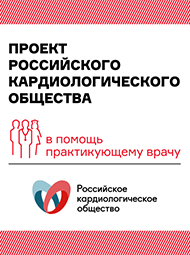Depression and heart disease: What you should know
The connection between heart disease and depression has long been known, but is not yet fully understood. While depression or anxiety stemming from a diagnosis of heart disease is a relatively straightforward matter of cause-and-effect, the connection appears to be reciprocal.
In one recent study, researchers found that major depression subsequent to a diagnosis of HF can lead to both all-cause and CVD-related death.
In pregnant women who learn that their baby has heart disease, this news can usher in depression and traumatic stress akin to the grieving process, according to researchers. These maternal emotional symptoms may, in turn, lead to further developmental problems for the fetus.
It is clear that this seemingly vicious cycle of causality needs to be interrupted. To this end, researchers have been evaluating different treatment approaches to alleviating CVD-related depression.
1. Major depression after HF diagnosis can be deadly.
It is not uncommon for depression to set in after a serious diagnosis such as HF, but according to a recent study, this feeling of unhappiness might make things worse. In particular, the study found that major depression after HF diagnosis is predictive of all-cause mortality. Mild depression, however, did not have this effect. Additionally, the researchers found that depressed mood after HF diagnosis was predictive of CV-related mortality.
Also addressing the correlation between HF, depression and mortality is theHopeful Heart Trial from the University of Pittsburgh Medical Center. The trial, which will evaluate the effects of depression treatment on HF patients, will include 750 patients and is funded by a 5-year, $7.3 million grant from the NHLBI.
2. A sedentary lifestyle after cardiac surgery increases risk for depression.
Researchers at the University of Winnipeg, Manitoba, Canada, found that physically inactive patients have a substantially higher risk for depressionafter cardiac surgery, and the number of patients who are depressed after cardiac surgery is as high as 40%. According to the researchers, “The combination of physical inactivity and elevated depressive symptoms increase CV mortality over a 10-year period, compared with either risk factor alone.”
3. For post-ACS depression, active treatment can help.
The management of depressive symptoms after ACS has been a topic of some debate among clinicians. However, findings from the CODIACS Vanguard Randomized Controlled Trial suggest that a centralized, patient preference treatment program can significantly reduce symptoms of post-ACS depression vs. usual care.
A separate study explored the benefits of telephone-based therapy in patients with post-ACS depression. In this study, researchers found that the use of a telephone-based, low-intensity model was effective in managing depression and anxiety in patients hospitalized for ACS. This treatment approach yielded improved mental health-related quality of life at 24 weeks compared with usual care.
4. High levels of CRP are linked to distress and depression.
A study conducted at Copenhagen University Hospital found that adults with elevated levels of C-reactive protein (CRP), a known CV risk factor, are also at higher risk for depression and psychological distress.
“The main finding of this study consisted of an association of elevated CRP levels with an increased risk for psychological distress and depression in the general population,” researchers wrote.
5. A prenatal CHD diagnosis can induce depression, traumatic stress in pregnant women
In pregnant women who learn that they are carrying a baby with CHD, some degree of sadness, anxiety and even grief are natural reactions. However,according to a study conducted at The Children’s Hospital of Philadelphia, these reactions may sometimes reach a level of clinical depression or traumatic stress. The study included women carrying fetuses with CHD requiring evaluation, surgery or catheterization within 6 months of birth. Researchers found significant levels of depression, anxiety and traumatic stress in these women, and wrote that such maternal distress may in turn lead to additional fetal abnormalities, such as preterm birth or small for gestational age status.
Source: www.healio.com






